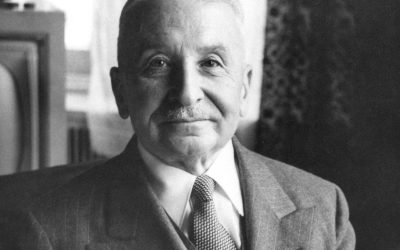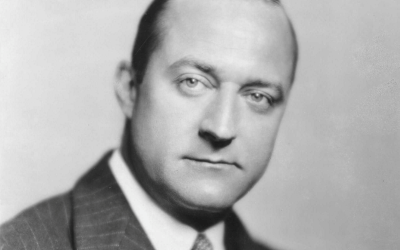In a free market, there is a tendency toward the equalization of the price of a good in the present with the expected price of that good in the future. For example, there is a tendency for the price of wheat or crude oil or whichever, today, to be equal to the expected price of wheat or crude oil or whichever next month, six months from now, or next year. This principle applies to any good that is capable of being held in storage.
The basis of this principle is the familiar fact that any discrepancy in price creates an opportunity for profit, the exploitation of which reduces the discrepancy. If, for example, wheat is expected to be more expensive six months from now than it is today, then speculators begin to buy wheat at today’s comparatively low price for the purpose of storing it and later selling it at the comparatively high price that is expected to exist in the future. The effect of their action is to raise the price of wheat in the present, and, by enlarging the supply available in the future, reduce the price of wheat in the future. As a result, the present and expected future prices are brought closer together.
The present and expected future prices will never actually be equalized, for two important reasons. First, there are costs of storing any commodity. In addition, since every business must yield the going rate of profit, if it is to continue in existence, it is necessary to earn as good a rate of profit in storing commodities as in any other line of business. Consequently, the actual relationship between present and future prices is that they tend to differ by no more than the costs of storage plus an allowance for the going rate of profit on the capital that must be invested in the storage.
The practical significance of this principle can be seen in the following example. Assume that the wheat harvest is one-twelfth below the size of the average annual harvest. It is, therefore, necessary to stretch what would normally be an eleven months supply of wheat over twelve months. If the price of wheat did not rise at harvest time, the consumption of wheat and wheat products would go on at the usual rate, requiring a more severe restriction of consumption later on. Imagine that the price did not rise until after ten months had gone by, during which consumption had occurred at the usual rate. In that case, two months would be left to go until the next harvest, and it would be necessary to stretch the remaining supplies, equal to only one month’s usual consumption, over that period. By the rise in price being delayed this long, one month’s supplies would have to be made to do the work of two, instead of eleven months’ supplies doing the work of twelve. The rate of consumption would have to be cut in half instead of merely by one-twelfth. It is the same in principle for all shorter periods during which the rate of consumption is excessive. Always, an excessive rate of consumption in the earlier months must be balanced by a more severely reduced rate of consumption in the later months.
The existence of speculation on future prices prevents such calamities and minimizes all such imbalances in the rate of consumption. Speculators anticipate the future prices of commodities and buy or sell the commodity in question for the purpose of profiting from every discrepancy between the present price and the prices they expect to exist in the future. In our example, the activity of the commodity speculators would serve to bring about the minimum necessary restriction in the rate of wheat consumption. For if they see that in the absence of their activity prices will reach famine levels in the future, or levels reflecting a severe scarcity, or even any level whatever that exceeds the present price by more than the costs of storage and the going rate of profit, they begin to buy the commodity in question for the purpose of profiting from the future high price. Their additional buying raises the price of the commodity in the present and thus restricts the rate of its consumption. Later, as the future unfolds, the goods in the hands of the speculators constitute a larger supply and serve to reduce prices in comparison with what they would otherwise have been. The activity of the speculators, therefore, serves to transfer supplies from a period in which they are less urgently needed, as indicated by their lower price, to a period in which they are more urgently needed, as indicated by their higher price. In this way, it brings about the optimum rate of consumption of limited supplies.
Speculative activity, of course, is not limited to anticipating just future scarcities. Rather, it seeks in general to balance consumption and production over time by accumulating stocks of commodities and regulating their rate of consumption. If it is anticipated, for example, that a future harvest will be larger than originally forecast, and thus that the price of wheat in the future will be lower than originally expected, the activity of the speculators will bring about a lower price immediately. In anticipation of the lower future price, some of the speculators will begin to sell their holdings of the commodity now, in order to find a more profitable employment for their capitals. As a result of their sales, the price begins to fall right away. As a consequence of the lower price, the rate of consumption in the present is expanded. In this case, the effect of speculative activity is to permit present 18 For an analysis of the actual process of adjustment in wages and prices that would follow the adoption of a policy of unilateral free trade or unilateral tariff reduction, and of the consequences if other countries simply refused to allow the goods of the country in question into their territory while it pursued a policy of free trade, see below chap. 12, sec. 4, the subsection “Unilateral Free Trade and the Balance of Trade.” consumption to expand in the knowledge that larger future production than originally expected necessitates the holding of smaller present stocks.
Much speculative activity occurs on organized commodity exchanges. However, only a relatively small number of basic commodities are traded on the exchanges— principally various agricultural commodities and nonferrous metals. For the rest, speculation is largely limited to those who are engaged in the actual production or use of the commodity.
It should be realized that every businessman is a commodity speculator when he decides what size inventory to hold of his product or materials and whether it is a good time to increase or decrease the size of his inventory. For he is basing his decision on a comparison of present prices and the prices he expects to exist in the future. In the same way, every consumer engages in commodity speculation when he decides to buy more or less than his normal requirements on the basis of a comparison of present prices with the prices he anticipates in the future.
The speculative activities of businessmen and consumers serve to equalize present and future prices in additional ways than the one we have considered. For example, if, in anticipation of higher prices, businessmen simply hold back on selling their inventories, they are decreasing the supply available in the present and increasing the supply available in the future, which, of course, acts to narrow the discrepancy in price. By the same token, if businessmen or consumers step up their purchases in the present, in anticipation of higher prices in the future, then, to that extent, their demand for the item in the future will be less because it will already have been provided for. In this case, a larger present demand and smaller future demand act to reduce the discrepancy in price.
Like almost every economic activity that goes beyond manual labor, commodity speculation is frequently denounced. Because speculation transmits the higher prices expected to exist in the future to the present, it is denounced as the cause of the higher prices. What is overlooked in this accusation is that the supplies accumulated as a result of speculation must ultimately be used, and at that time they necessarily act to reduce prices—because either they are put on the market and sold, thereby increasing the supply of the commodity, or, by sparing their owners the need to purchase, they reduce the demand for the commodity. Moreover, if the speculators are mistaken—if they raise the present price and there is no independent cause of a higher price in the future— they pay the penalty for their mistake: they have bought at high prices and must later sell at low prices; or they have stocked up at high prices when they might later have bought at low prices; or, in holding back their supplies in the hope of selling at higher prices, they end up having to sell at lower prices than they could have obtained by not holding back.19
* * *
It is necessary to point out that the connection between present and expected future prices is broken in conditions of increases in production and declines in price. In such conditions, the ability to reduce prices in the present by selling out of accumulated stocks reaches its limit once those stocks have been reduced to their necessary minimum. At that point, if prospective future prices are lower still, no mechanism remains which is capable of driving present prices down any further and thus coming back into correspondence with the prospective future prices. (There is no basis for a decline in demand in cases in which the item needs to be used in the present, such as food. There is also no basis for any general or widespread decline in demand insofar as the falling prices that are expected to result from increased production will enable people’s incomes to go further, for this gives them the prospect of being better off in the future. In these conditions, people are in a continually better position to buy.)
Thus, it becomes possible for prospective future prices to fall below present prices by almost any amount. This in fact is regularly the case with respect to agricultural commodities in the months preceding the harvest. Their prospective prices during the coming harvest are almost always sharply below their current prices, precisely because of the inability to make significant further sales out of accumulated stocks, which stand at their low point in the period before the harvest. And the very fact that the stocks do stand at a low point is also responsible for the prices in the months just prior to the harvest standing at a high point.
The connection between present and future prices is established mainly by the accumulation of stocks to take advantage of prospective higher prices in the future. Declines in present prices based on the anticipation of lower future prices occur in a context in which the holding of significant supplies for the future is still necessary, but in which it is possible for the magnitude of the supplies held to be less.
Adapted from Reisman’s Capitalism: A Treatise on Economics, Chapter 6, The Dependence of the Division of Labor on Capitalism, “The Tendency Toward Uniform Prices Over Time: The Function of Commodity Speculation”




